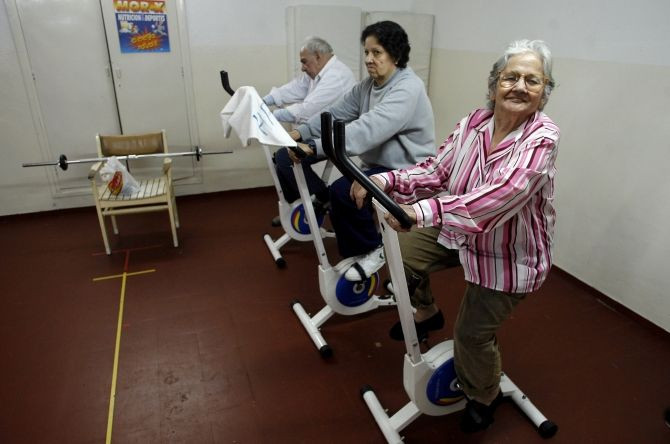Physical Exercise Reduces Brain Damage

Physical exercise, not mental activities, well into old age can help slow brain damage and keep off dementia, says new research.
"People in their seventies who participated in more physical exercise, including walking several times a week, had less brain shrinkage and other signs of aging in the brain than those who were less physically active," said Alan J. Gow, PhD, with the University of Edinburgh in Scotland and one of the authors of the study.
The study included 638 men and women from Scotland who were born in 1936. Their medical records were assessed and they were also given an MRI scan at age 73.
Details about the participants' exercise habits were collected, like how often they exercised and at what intensity. Researchers also collected details about the participants' mental and social activities.
Researchers found that participant's with highest levels of physical activity had lowest levels of brain damage compared to people who had minimal levels of exercise.
Previous studies have shown that taking part in everyday activities too can act as a buffer in cognitive decline. People with high intellectual ability remain mentally healthy till very old age, says a study in American Psychological Association.
However, researchers from the University of Edinburgh say that in their study they didn't find any association between mental activities/social skills and dementia.
" ...Our study showed no real benefit to participating in mentally and socially stimulating activities on brain size, as seen on MRI scans, over the three-year time frame," said Gow.
Dementia affects about 24 million people in the world and is one of the world's fastest growing diseases.
"Our results show that regularly exercising in old age is potentially important to protecting the brain as we age," said Gow.
The study is published in the journal Neurology.



























